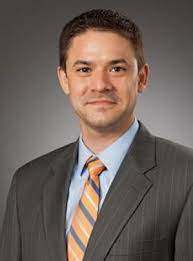Overcome
Depression
NorTex Psychiatry TMS & Ketamine is an outpatient psychiatric clinic that offers a full range of cutting edge interventional psychiatric treatments.
Overcome
Depression
NorTex Psychiatry TMS & Ketamine is an outpatient psychiatric clinic that offers a full range of cutting edge interventional psychiatric treatments.
TMS & Ketamine Therapy in North Dallas Texas
Providing The Skills and Tools For Lifelong Resilience and Fulfillment.
Nortex Psychiatry
TMS Self Assessment Test
This assessment is not designed to serve as a diagnostic instrument, nor should it substitute for an accurate diagnosis. It is merely intended for providing information. It’s crucial to remember that only a certified mental health professional or a physician should diagnose mental health issues. Irrespective of the outcome of our evaluation, we strongly recommend consulting with a doctor regarding your mental health.
Non-Invasive & Drug Free


Outpatient Procedure with Minimal Downtime
Effective for Treatment-Resistant Conditions

Our Reviews
Posted onTrustindex verifies that the original source of the review is Google. Life-Changing Experience with TMS Treatment After years of battling treatment-resistant depression, I decided to try Transcranial Magnetic Stimulation (TMS). It was a decision that changed my life. The process, though initially unfamiliar, was explained thoroughly by the medical staff, who were supportive and professional throughout the entire journey. The sessions themselves were straightforward and non-invasive. Each treatment lasted about 20 minutes, during which a magnetic coil gently stimulated areas of my brain linked to mood regulation. At first, the sensation was a bit odd — like a tapping on my scalp — but it became more comfortable as I adjusted. Over the weeks, I noticed gradual improvements. By the end of my treatment course, my mood had lifted significantly, and I began experiencing a level of clarity and energy I hadn’t felt in years. It didn’t feel like a temporary fix; it felt like my brain had been “reset.” TMS isn’t a quick fix, and it requires commitment. However, for someone like me, who didn’t respond well to medications, it was a game-changer. It has now been a few months since my sessions ended, and I continue to feel the positive effects. If you’re considering TMS, I encourage you to do your research and talk to a trusted provider. It’s not for everyone, but for those it helps, the results can be profound.Posted onTrustindex verifies that the original source of the review is Google. Staff is super nice and personable! Recommend to anyone seeking TMS treatment for depression.Posted onTrustindex verifies that the original source of the review is Google. Nortex has been life changing they truly care about getting you back to your best self! Thank you!Posted onTrustindex verifies that the original source of the review is Google. Wonderful team! Highly recommend TMS for depression as I’ve seen amazing results from it.Load more

Clayton L. Allison, M.D.
Dr. Allison completed his general psychiatry requirements at Mayo Clinic in Rochester, MN before “fast-tracking” into a psychiatry fellowship at UT Southwestern in Dallas, TX where he served as chief fellow during his final year. He then went on to complete a forensic psychiatry fellowship at UT Southwestern.
Prior to medical school, he worked as a licensed chemical dependency counselor at Menninger Clinic, managing the substance use disorder track on the young adult unit. His training and experience in adult, child and adolescent, and forensic psychiatry provide background for the management of a variety of conditions. He is comfortable treating all age groups.
Brittany Huckaby
PHNP

Schedule Your Appointment
Complete the form below to schedule your appointment or consultation. We take your privacy seriously. Information will never be shared and is always encrypted.

Is Ketamine Therapy Right for Me? A Self-Assessment Guide
At NorTex Psychiatry, we talk with people every week who feel stuck. They’ve tried medications. They’ve done therapy. They’re functioning,

Can Ketamine Therapy Help with Migraines? What Patients Need to Know
Migraines are not just bad headaches. They can take over your day, your job, and your family life. Many of

What to Ask Your Doctor Before Starting Ketamine Therapy
If you’re thinking about ketamine therapy, the most important step happens before your first session. It’s the conversation you have

Are Ketamine Therapy Results Permanent? What Patients Should Know
This is one of the first questions we hear in consultations. People want real relief, not a short break from

